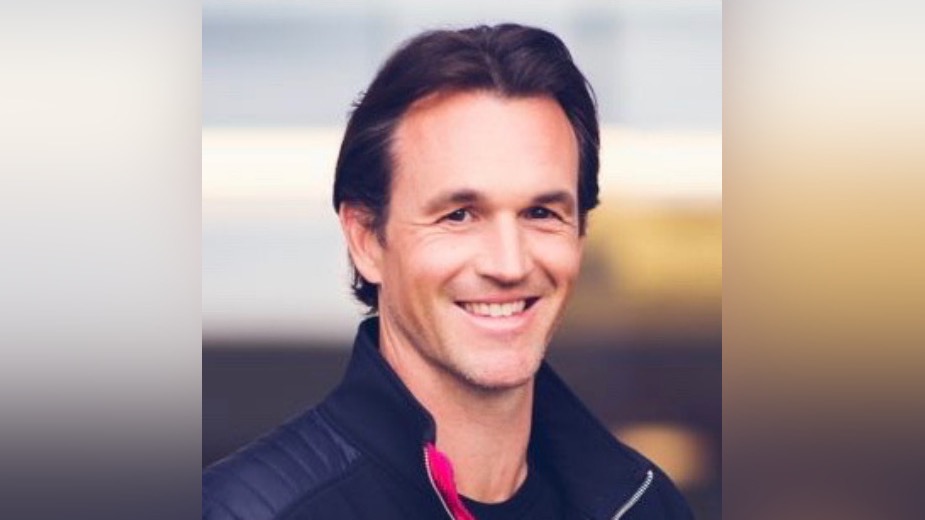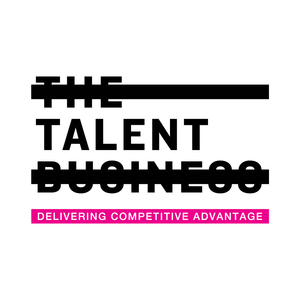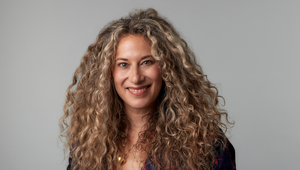
Crucible Moments: Nicholas Drake

The Talent Business is the world leader in executive search for businesses fuelled by innovation and creativity. Its experience of partnering CMOs around the world on their transformation agendas during this period of unprecedented challenges inspired this new series of interviews. Titled ‘Crucible Moments’, we explore times within marketing leaders' careers when they were tested in ways that dramatically exceeded the scope of any prior situation.
Nicholas Drake, vice president of Global Marketing at Google, might have had a very different career trajectory. As a young man, an exciting career as a professional rugby player lay ahead. Fate had other ideas and injury stopped him in his tracks. Always an optimist, Nicholas found opportunity in adversity and found his way to marketing. Throughout his career, he’s faced difficult challenges but thanks to early lessons in flexibility and inclusion, learned from his rugby coach, Nicholas has continued to bring his teams along with him.
“I think every game of rugby is kind of a crucible moment.”
Nicholas Drake describes himself as an ‘eternal optimist’ and, as a leader, has tackled mammoth challenges with distinct mindfulness and compassion. At Quiksilver, on his first day he was handed the task of making 200 people he had never met redundant. At T-Mobile, he joined at a time the network was shedding a million users a year and was part of a senior leadership team that managed to grow users from 33 million to 120 million in a few years. At Google, he joined what he sees as the strongest digital marketing team in the world… and then just three months later the world was plunged into an unprecedented pandemic.
It turns out, Nicholas can trace the skills and mindset that have helped him thrive in tough times back to a highly influential rugby coach. In the late ‘90s, Nicholas was an aspiring rugby player, more concerned with marking opponents than marketing. In 1998 he landed a professional contract with club London Irish, a team that was languishing at the bottom of the Premiership. But as a young aspiring athlete with his future ahead of him, Nicholas grasped the opportunity. And into the club walked coach Dr Brendan Venter. A GP and former player for South Africa – a member of the World Cup-winning team immortalised in the movie Invictus – Brendan brought in ideas like radical inclusion and encouraged players to engage in ‘micro moments’ of play that they could control, a philosophy akin to mindfulness.
“His philosophy was, as a player, if you were dominating your opposite number in everything that you were doing and the person next to you was doing the same, the holistic effect was that you would be beating the team. Most coaches prior to that would focus on ‘plays’, the flow of the game,” reflects Nicholas.
Nicholas might not have known it then, but Brendan’s lessons formed an important foundation that would shape his future.
The first real test happened out of the blue. While each game of rugby might have been its own mini crucible moment, Nicholas soon had to face the real thing. An injury left him so seriously hurt that he couldn’t play.
“My greatest moment was one of my most tragic moments. Just as I had my first professional contract, I paralysed my arm and everything that I thought I was going to do suddenly seemed to be taken away from me,” he says.
Nicholas could have given up and mourned his bad fortune – instead he broke the problem down and switched direction – changing the whole flow of his life. He realised that if he couldn’t play sports as a career, he’d like to do something related to sports. He managed to wangle himself an internship at a media agency, where he worked on sports sponsorships and learned about analytics.
As mobility returned to his arm, he got the opportunity to play again with the team. But while his colleagues trained in the mornings and played PlayStation in the afternoon, Nicholas wanted to put his free afternoons to good use. Nigel Morris at Dentsu allowed him to come into the agency for three hours a day to work on the Adidas account. “I can’t think of any other person who would let a highly unqualified rugby player wander into their office for three hours an afternoon to learn about media buying and planning,” laughs Nicholas.
Adidas was, at the time, also a sponsor of London Irish, and something clicked because by 2003 Nicholas was invited to join the marketing team over in Amsterdam. He marvels at the memories of seeing sporting legends like Mohammed Ali and Dick Fosbury at global marketing meetings and reminisces nostalgically about being on the periphery of major conversations about the pronunciation of ‘adidas’ (Run DMC’s hit track My Adidas, it turns out, was a major factor behind not reconciling the European and North American pronunciations). No wonder he looks at that time fondly – a career-ending disaster ended up opening doors he never could have predicted.
“Probably, I’m known as an eternal optimist. In other words, I think every challenge provides an opportunity. Brendan was able to give me a toolset that allowed for that philosophy. You could see every challenge as a moment to take learnings and quickly use your building blocks to go try another path. Invariably, as I’ve gotten older, I realised that every challenge has actually led to something greater. And it was probably important that I faced it. If it didn’t work out, you had to pivot quickly and move onto the next thing to take advantage of. I really do credit Brendan for giving me the tools to metaphorically ascend Everest. It may seem overwhelming, if you look at it as the sum total of its parts. How on earth do I begin? But, in fact, if you break it down to the micro components and set yourself short term wins, they are an indication that you’re leading to something successful,” says Nicholas.
“Of course, you’re going to change path along the way; you won’t necessarily get there the way that you thought about the ascent originally. Being able to pivot quickly and learning and rebuilding your micro blocks and getting going again is really important.”
As Nicholas moved forward in his career, those insights have proven invaluable. Joining Quiksilver as global CMO in 2013, he met a company on the verge of bankruptcy and was immediately tasked with a heart-wrenching task of mass redundancy. These were hard decisions, but facing them has, Nicholas believes, made him a stronger leader. The survival of the company depended on these decisions – and under the guidance of CEO Andy Mooney, Nicholas really learned an appreciation for return on ad spend and value.
“I’m really grateful for the Quiksilver experience because it put me in this crucible of decision making. It really made me care about every single dollar spent,” he says, with seriousness. “When you’ve spent time in agencies, sometimes client expenditure can feel somewhat remote. It’s not as tangible as when you’re operating those dollars, and never more so than when you’re in a company that’s teetering on the edge of no longer being there, and people’s livelihoods depend on it.”
But if he thought Quiksilver was a crash course in accountability, Nicholas had another thing coming with T-Mobile. There, in a souped-up version of Brendan Venter’s openness and inclusion, CEO John Legere insisted that all of the senior leadership were accessible to customers. Emails and phone numbers were made public – turning around the company meant really listening to people, and actually acting on their complaints.
“Believe me, if you’re getting contacted by an upset customer about something, you’re going to go fix that problem pretty quickly! There’s no fun in losing your weekends because some part of the business you’re responsible for isn’t serving the customers in the right way,” exclaims Nicholas, who says that as important as data is, there’s an important, viscerally emotional insight that comes from hearing people. John, he recalls, would pull up random customer care calls to understand what the business’s priorities should be. “I really appreciated T-Mobile removing the layers between you and the customer.”
Throughout his career, Nicholas says he’s always chosen his challenges based on what makes him feel uncomfortable. That’s how he knows there’s something worth learning. For Google, that discomfort came from a deep sense of intimidation at what CMO Lorraine Twohill has built up. Could he make an impact surrounded by such talent?
“Lorraine has built, I think, hands down the best digital marketing team in the world. It has defined what digital marketing can be and continues to help millions of clients around the world and how they think about digital marketing every day,” he enthuses.
The real challenge – the crucible moment of crucible moments – occurred just three months into the role. Covid-19 sent his teams into remote working. One of the many products under his remit was Google for Education. The team worked with teachers, NGOs and governments to create a hub packed with resources for teaching resources. Nicholas was also involved in Google’s huge collaboration with Apple to create contact-tracing tools for governments, navigating data and privacy issues to keep people safe.
In fact, the remote collaboration aspect of the pandemic was the least challenging part. Google’s suite of products is built for such working. Instead, the real challenge was helping his people to steer through the mental health challenges. As it happened, before joining Google, Nicholas had undertaken a 12-week course at the Compassion Institute at Stanford, and had had the opportunity to visit the Dalai Lama.
“I felt that meant much of what I learned there equipped me to show up for my team,” he says. For example, reflecting his own situation Nicholas’s automatic response was to think of the stresses facing families. Compassion forced him beyond that, to think about the members of his team living in complete isolation or piled up in cramped, shared-living situations. Leading by example and sharing his own vulnerability, demonstrably using Google’s wellbeing days were also crucial.
Drawing the comparison between Nicholas’ own leadership and that of his mentor back in his London Irish days is irresistible. He’s added his own insights and lessons to the mix as he’s faced various challenges, but ultimately that openness, mindfulness and holistic view are key.
So, what advice would Nicholas give leaders trying to guide their team through their own crucible moments?
“First of all, I always find the answer is within the team, rather than coming with a set of preconceived ideas about what may be helpful. The very first thing I always do is a listening session so I’m fortunate that my team has created an infrastructure of a multitude of different listening sessions with different layers of the business with different groups that identify in different ways. It's incredibly important that your input is as diverse as it can be. And that may mean geography, or racial identity, or gender identity or sexual identity; there are so many different ways that people need to be seen and heard. And then you can create really inclusive sets of learnings and then thoughts around what may be helpful for your team,” says Nicholas.
“But I think that the extraordinary privilege I have working with Google is you get to work with some of the world's smartest people. And so, I have to be vulnerable enough to say I don't have the answers most of the time, but my team does.”
Trust in your team, be vulnerable, listen and keep moving… it turns out that business is like a game of rugby after all.










